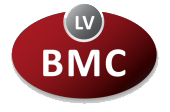
Project Title: Interplay of Environmental and Genetic Factors in the Immunologic Mechanisms of Thyroid Autoimmune Diseases
Project No: lzp-2018/2-0059
Period: 1st December 2018 – 30 November 2020
Project costs: 199 998.00 EUR
Principle Investigator: Assoc. prof., Dr. med. Ilze Konrāde (RSU)
Collaboration: Latvian Biomedical Research and Study Centre
Summary
Aim of the project is to analyze susceptibility genetic variants for Autoimmune Thyroid Diseases (AITD) in patients with Hashimoto’s thyroiditis (HT) and Graves’ disease (GD) according to precision medicine concept and to investigate the interaction between them and particular environmental factors including selenium intake and status, stress, lifestyle habits and other triggers in the occurrence of different T helper pathways and cytokine patterns. Objectives: 1. To investigate association of immune-modulating and selenoprotein genotypes with AITD and related clinical, environmental parameters and T helper pathways. 2. To detect whether iodine supplementation improves iodine status in pregnant women with mild iodine deficiency and whether iodine used in combination with selenium will reduce risk of thyroid autoimmunity during pregnancy or postpartum period in women with assessed selenium status and genetic variants. 3. To investigate the long-term effect of selenium supplementation on the thyroid function and disease activity as well as to evaluate its modulating effects on shifting T helper immune response in treatment-naïve euthyroid patients with HT in context with selenium status and assessed immune-modulating and selenoprotein genetic variants. 4. To evaluate the possible association between the number and impact of stressful life events in AITD patients and Th1, Th2, and Th17 circulating cytokine profiles in order to better understand the effects of stress-related mechanisms on the immune system in association with cytokine-related genes.

